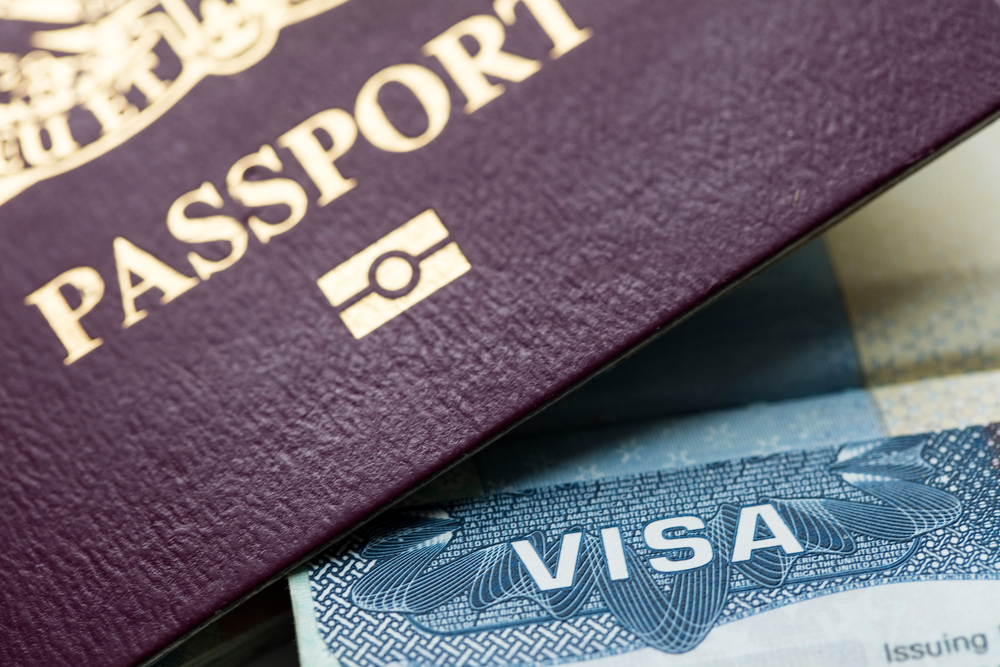UK immigration and families: domestic workers in private households
News

Can families from outside the UK bring their household staff when coming to the UK?
We are often asked to advise non-UK based individuals and families wanting to come to the UK whether they can be accompanied by members of their household staff. This question is often on the mind of both those wishing to take up residence in the UK and those who want to simply visit the UK. We are also frequently asked to assist individuals who already live in the UK and want to employ household staff.
It is unsurprising that this question arises regularly, given that many HNWIs are frequent travellers who often have homes in several countries, and bearing in mind the close and often long-standing nature of relationships forged between HNWIs and their domestic staff.
Up until April 2012, the position for employers wishing to bring their non-EU domestic employees to the UK with them was relatively straightforward. Provided the employee had worked in the employer's household for at least a year, the domestic worker could obtain an initial visa for 6-12 months, which could then be extended.
Domestic workers were also allowed to change employer whilst in the UK, as long as they remained a domestic worker. Once the domestic worker had been in the UK for 5 years, they could apply for permanent rights of residence. Thus it was possible for a HNWI to bring their domestic workers with them in the expectation that they would be able to remain in the UK as long as the HNWI did.
However, in April 2012 the law radically changed. The old rules still apply to those who arrived before April 2012 but domestic workers who arrived after the change in law are unable to stay in the UK for longer than 6 months at a time, and it is impossible for them to obtain indefinite leave. Domestic workers can still change employers whilst in the UK, however, this is only possible in the context of the 6 month maximum visa.
Under the new rules, non-EU domestic workers are effectively only allowed to accompany their employers on
visits to the UK. As the then Home Secretary, Theresa May, said at the time the rules were introduced, "We are restoring [the overseas domestic worker routes] to their original purpose—to allow visitors and diplomats to be accompanied by their domestic staff—not to provide permanent access to the UK for unskilled workers".
With this in mind, we turn to answer some of the key questions which regularly arise in this context.
Which jobs are classified as those of Domestic Workers?
Domestic workers are those who provide personal care services related to the employer and the employer's family as well as those who provide personal service related to the employer's household. Examples of such roles include drivers, nannies, carers, cooks, cleaners, gardeners, etc.
My client lives abroad and plans to come to the UK. He wants to bring his current (non-EU citizens) domestic staff with him?
Generally speaking, domestic employees who have been employed in their employers' household outside the UK for at least 12 months may be able to accompany that employer and his immediate family members on their trips to the UK. To do so, the worker must apply for a Domestic Worker visa, which, if granted, will allow the worker to accompany the employer in the UK for a period not exceeding 6 months at a time. This visa is therefore best described as a visitor visa for household staff which allows them to work in the UK for their foreign employer for a limited period of time. The rules specifically prohibit domestic workers from living in the UK for extended periods through frequent and successive visits.
To qualify for this visa, the worker in question must meet set criteria. This includes a requirement that during time spent in the UK the worker must intend to work for that employer, in a domestic capacity, and in the employer's household in the UK.
Another pre-condition for post-2012 domestic worker visas is that, whilst in the UK, the salary paid to domestic staff must be in accordance with the UK National Minimum Wage requirement. This seems to be a recurring issue for Domestic Worker visa applicants, in particular, where employers are unaware of this requirement and where they ordinarily reside in jurisdictions in which the salaries of household staff are significantly lower than the UK National Minimum wage rate.
My client and one of his children intend to spend 5 months in the UK next year. Immediately upon their return home, his wife and second child plan to visit the UK as well, also for a period of 5 months. Both my client and his wife want to travel with a nanny. Is that possible?
Although it is possible to apply for multiple Domestic Worker visas, as noted above, this visa should not be used to effectively live in the UK through frequent or successive visits. Therefore, in these circumstances, difficulties may arise if the same nanny tried to enter the UK on both occasions, especially because the break between the two trips is short. In these circumstances, where possible, it is advisable to put arrangements in place which would allow another nanny to apply for a Domestic Worker visa for the second trip. Alternatively, the client may wish to consider changing the pattern of the family's travel to the UK.
My client is in the UK and wants to employ a gardener and a cook (both non-EU citizens) household staff who already have Domestic Worker visas. Can they work for me?
This depends on when the workers' initial visas were issued. For example, Domestic Workers whose initial visa was issued on or before 6 April 2012 are still able to change employers and can continuously extend their visa in the UK (ie they are not subject to the 6 months' restriction on stay in the UK). Additionally, those whose visas were issued on or after 6 April 2012 may change employers - however, they will not be able to remain in the UK for more than 6 months from the moment they entered the UK and are unlikely to be able to return to the UK again as domestic workers for that employer. It is therefore up to the employer to consider whether they are willing to offer short term employment to such workers.
When recruiting staff in the UK, or considering bringing existing domestic staff to work here, it is important to take into account the obligations on employers under UK law and to take steps to safeguard the employer's position. For example, all UK employers (including those employing household staff) are responsible for ensuring that their employees have the right to live and work in the UK. Those found to have employed workers illegally may be liable for heavy fines and, in some cases, criminal prosecution. The UK government has published guidance and created a checking service to assist employers in this respect.
Will my client be able to bring his EEA domestic staff with him after Brexit?
Currently, an EEA or Swiss national employed as a domestic worker can simply accompany their employer to the UK exercising their free movement rights. As yet, we do not know exactly what the situation of such individuals will be after the UK leaves the EU in 2019. However, the Conservative Party manifesto says, "We will … establish an immigration policy that allows us to reduce and control the number of people who come to Britain from the European Union, while still allowing us to attract the skilled workers our economy needs". As unskilled workers, it is likely that the UK's post-Brexit policy will be unwelcoming to EEA domestic workers. There is a real possibility, therefore, that they will be subject to the same rules as currently apply to non-EEA domestic workers. It should be noted that under current law, any person who has continuously exercised free movement rights in the UK for 5 years has automatically acquired the right of permanent residence here, and can apply for British citizenship after holding that status for a year. Any employer who wishes to retain the services after March 2019 of an EEA domestic worker who meets these criteria may wish to encourage them to apply for a permanent residence card and/or British citizenship in order to protect their position here.
Finally, other matters such as employment law issues need to be considered in these circumstances. For further information concerning employment related issues, please refer to a briefing published by our Employment Law specialists.
If you require further information on anything covered in this briefing please contact Elena Hinchin([email protected]) or your usual contact at the firm on 020 3375 7000.
This publication is a general summary of the law. It should not replace legal advice tailored to your specific circumstances.
© Farrer & Co LLP, June 2017







